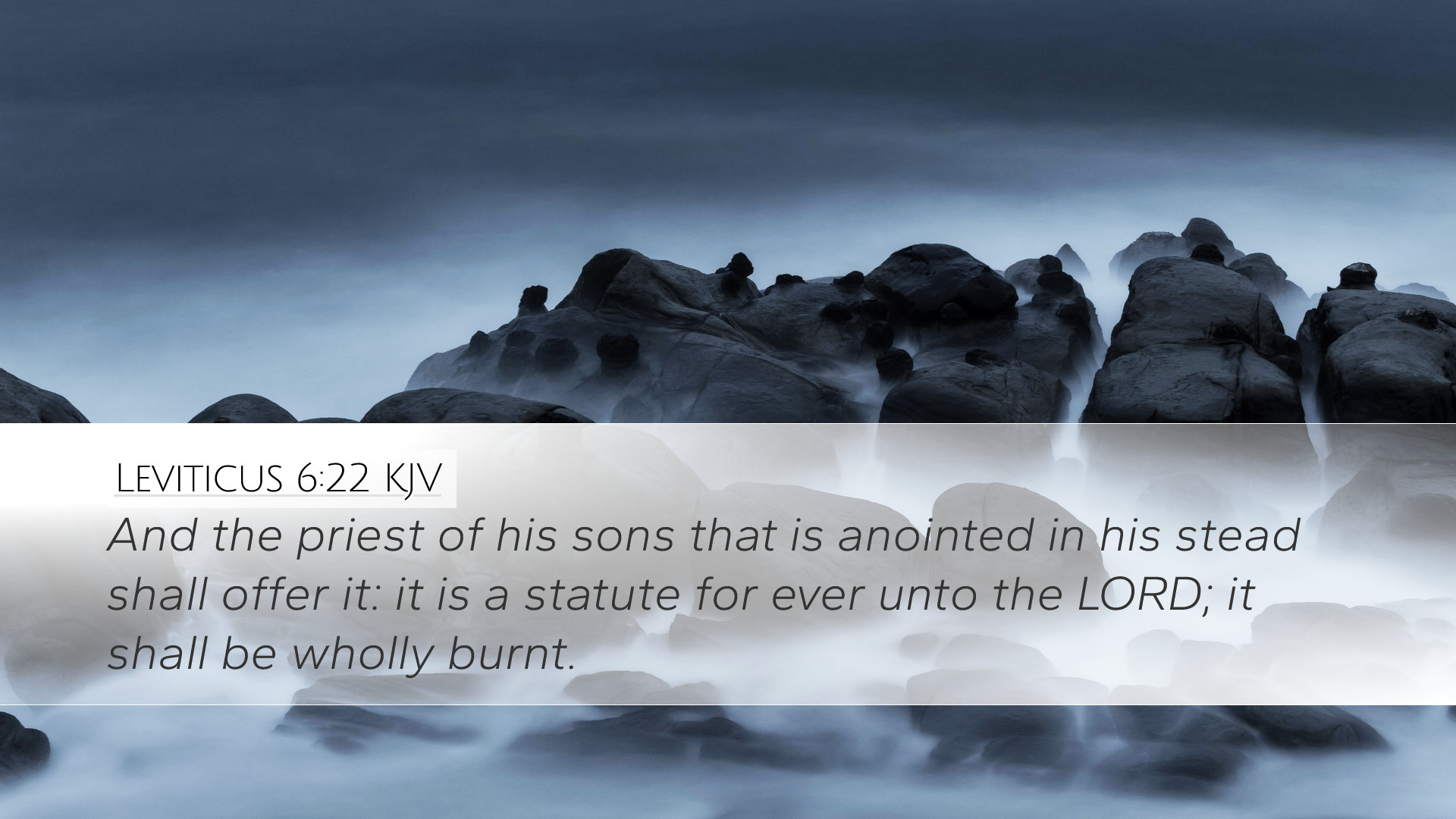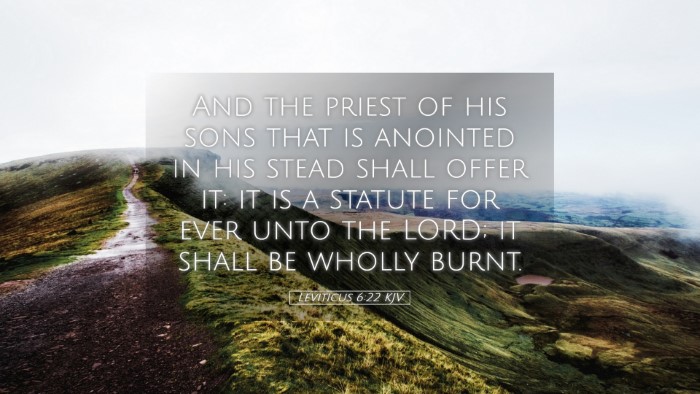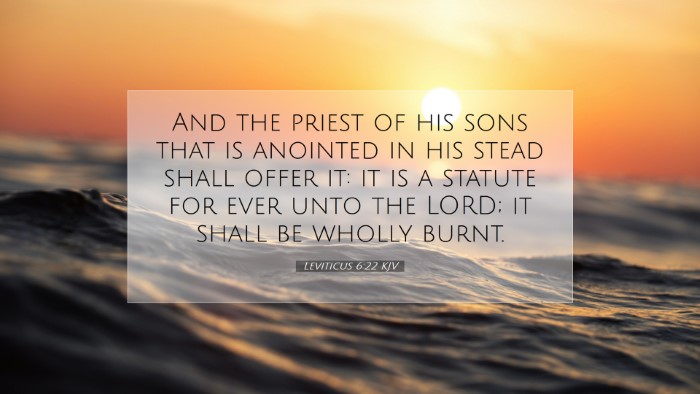Bible Commentary on Leviticus 6:22
Verse: "And the priest that offereth it for sin shall eat it: in the holy place shall it be eaten; in the court of the tabernacle of the congregation."
Context and Importance
The Book of Leviticus serves as a key text within the Pentateuch, providing the priestly regulations and laws necessary for the worship and sacrificial practices of the Israelites. Specifically, Leviticus 6:22 addresses the sin offering and emphasizes the role of the priest in the sacrificial system.
Commentary Insights
Matthew Henry's Reflection
Matthew Henry notes that the priests had a significant role in mediating between God and the people. The consumption of the sin offering by the priest symbolizes their part in atonement and the seriousness with which they were to treat the sacrifices. He emphasizes the holy nature of the food, which was to be consumed in the holy place, indicating that the sanctity of the offerings extends to those who partake of them.
Albert Barnes' Explanation
Albert Barnes focuses on the regulations around the sin offering. He mentions that the priest who offers the sacrifice for sin must eat it in a prescribed holy area, which illustrates that the priest, by eating the offering, is partaking in the sanctification process. This act not only signifies atonement but also reinforces the priest’s continuous connection to sin and the need for mediation.
Adam Clarke's Analysis
Adam Clarke elaborates on the significance of the sin offering. He observes that the consumption of the offering by the priest in a holy place demonstrates the dual aspects of sacrifice: God’s provision for atonement and the community's participation in the sacrificial lifecycle. Clarke also points out the implications this has for understanding the communal nature of sin and redemption, asserting that the priest embodies the responsibility of the people before God.
Theological Implications
This verse invites theological reflection on the nature of sin, atonement, and the role of the priesthood. The act of eating the sin offering serves as a reminder that sin must be dealt with seriously and that atonement involves participation at a communal level. Each element of the sacrificial system—and particularly the priest's part in it—highlights God's holiness and the overarching need for mediation in the presence of sin.
Priestly Mediation
- The Role of the Priest: The priest acts as an intermediary, representing both God and the people. In consuming the sin offering, the priest affirms their role in the spiritual life of the community.
- Symbol of Atonement: The act of eating reinforces the understanding of atonement as a complex and shared experience instead of a transactional one.
- Communal Responsibility: The necessity for priests to be involved in sin offerings highlights the communal implications of individual sin and the shared journey towards atonement.
Practical Applications
For pastors, students, and scholars, this verse encourages reflection on the meaning of sacrificial practices in contemporary faith. The concept of atonement, mediation, and the participation of the community in sanctification can be translated into modern worship practices and the communal aspects of sin and grace.
Understanding Sin and Atonement
- Awareness of Sin: Just as the sin offering was a reminder of individual and communal sin, modern believers must maintain an awareness of sin in their lives and communities.
- Role of Leaders: Church leaders today must embrace their role in guiding their congregations through the process of confession and repentance, emulating the model established in Leviticus.
- Communal Worship: Emphasizing corporate worship and the collective return to God reinforces the idea that while sin is personal, redemption is a shared journey.
Conclusion
Leviticus 6:22 underscores the essential principles of the sacrificial system and its relevance for understanding atonement, sin, and the priestly role. By examining the insights from Matthew Henry, Albert Barnes, and Adam Clarke, we glean a holistic view that spans historical, theological, and practical dimensions of faith and community. As believers engage with this text, they are invited to contemplate their personal and communal relationships with sin and the transformative power of God's grace.


